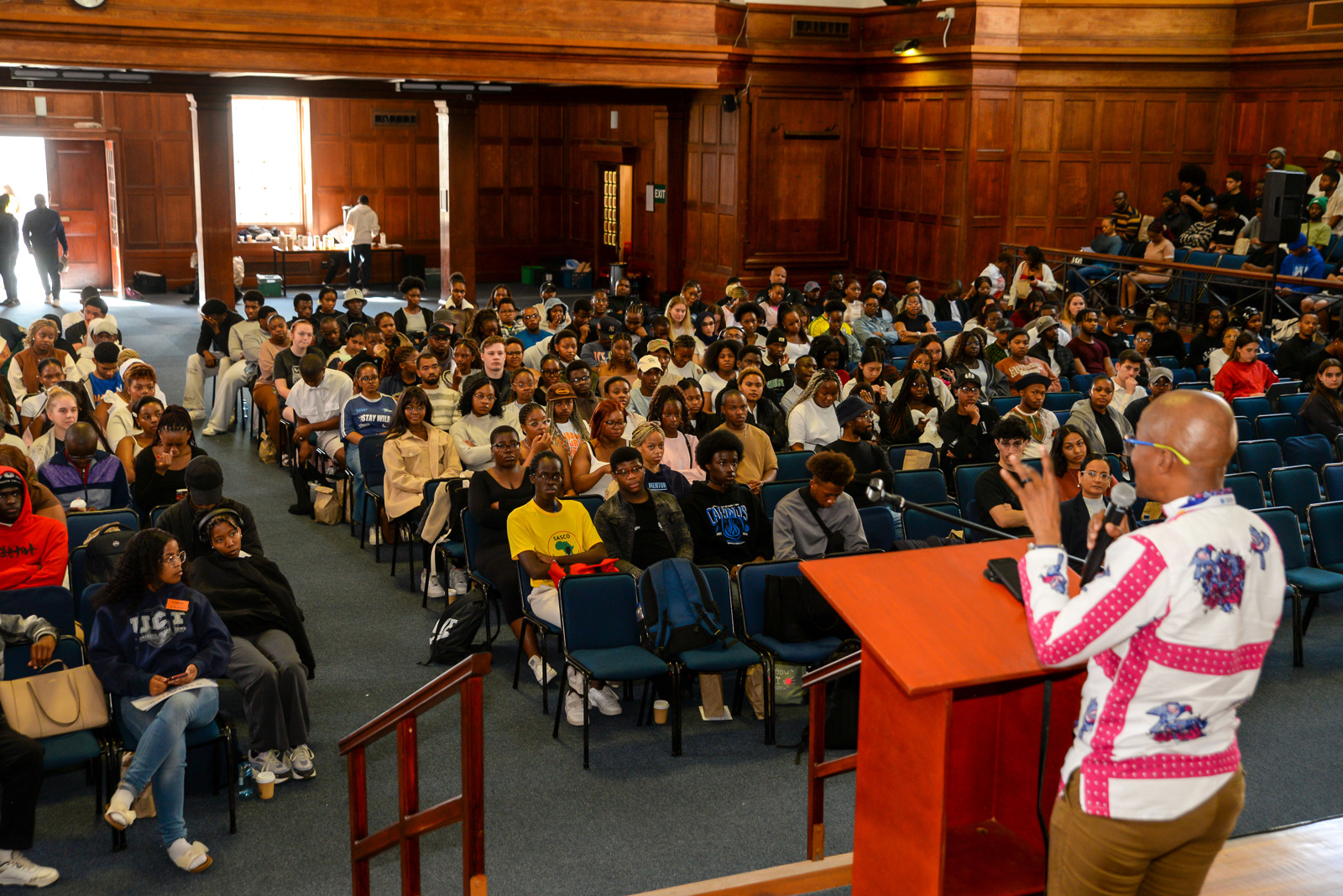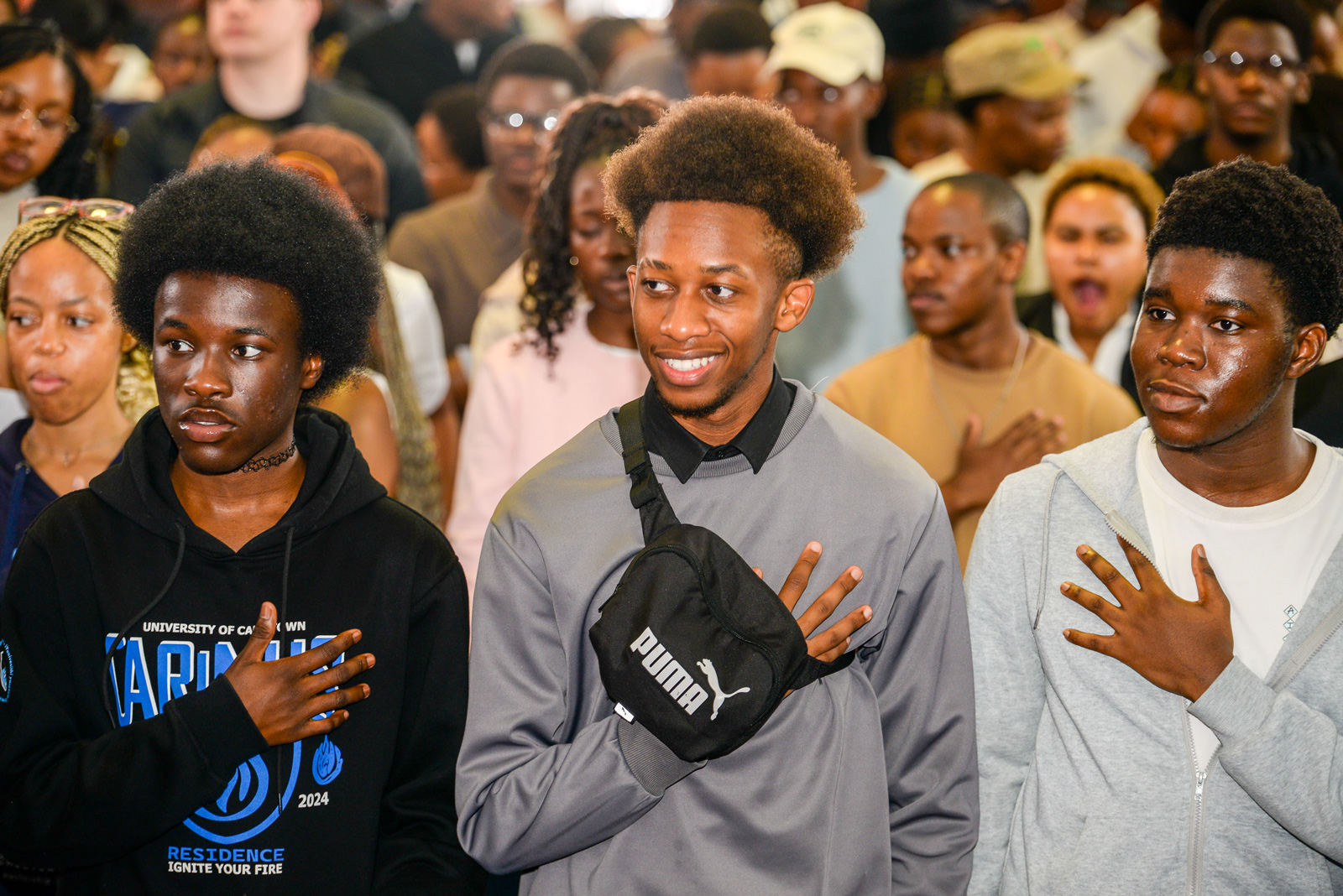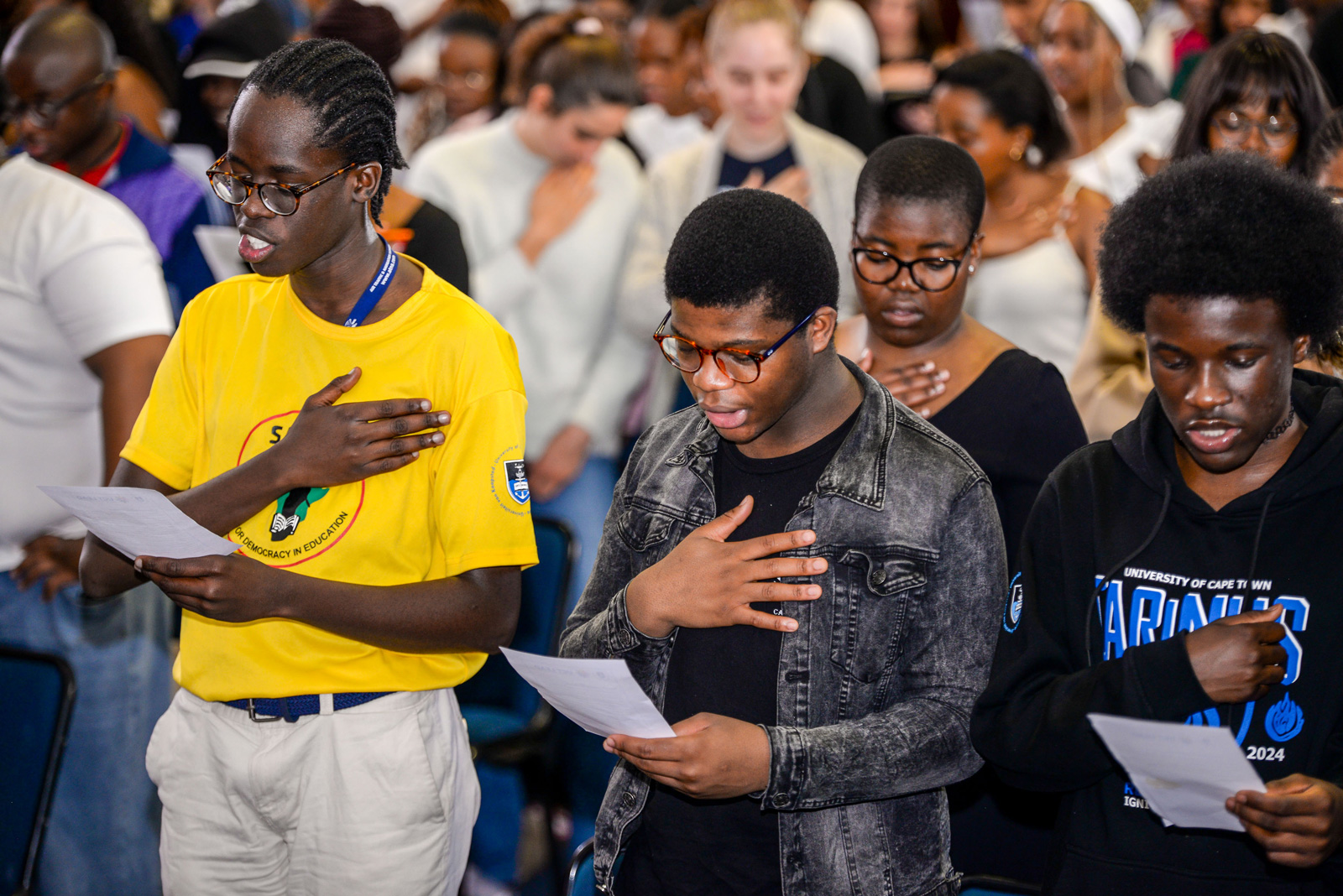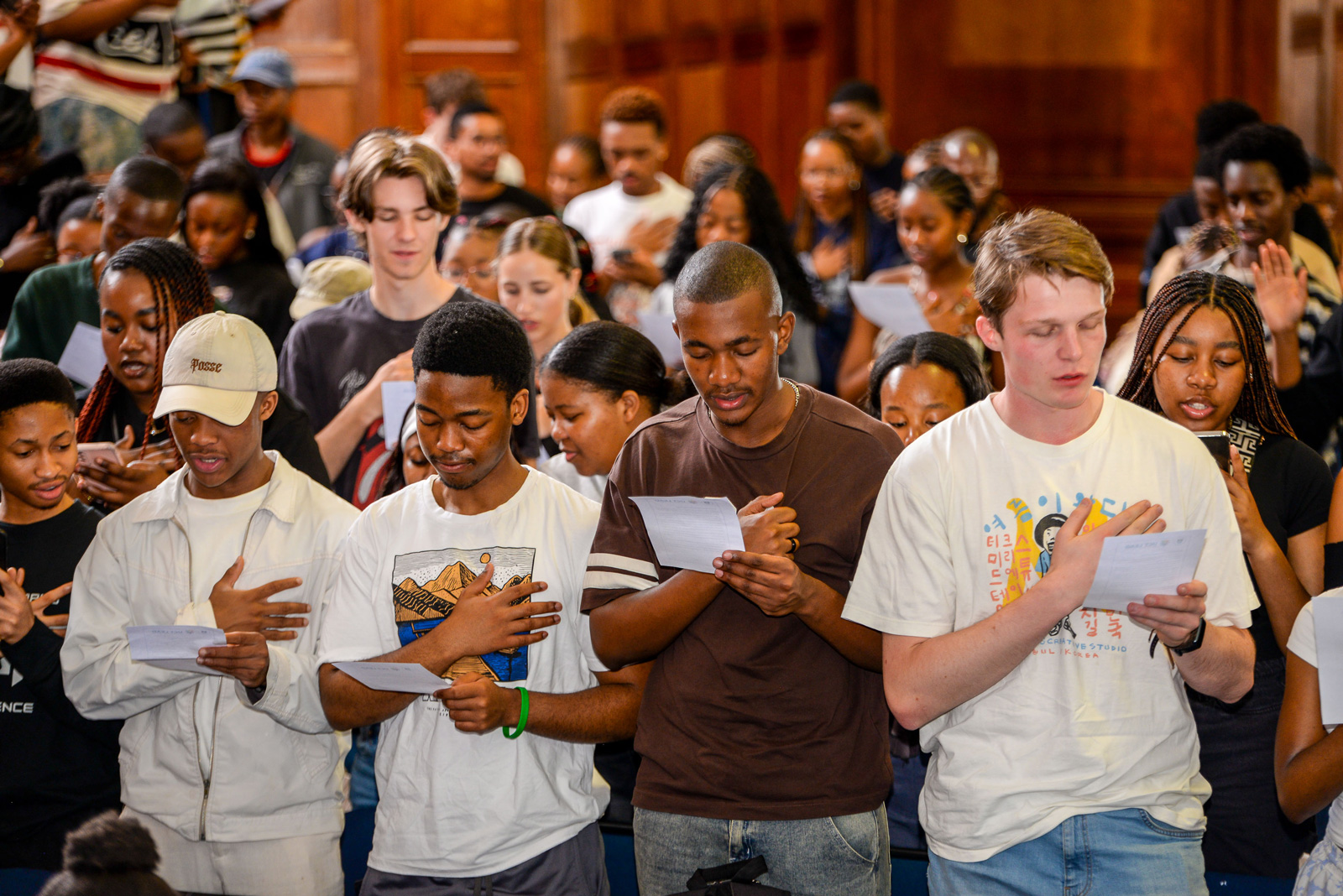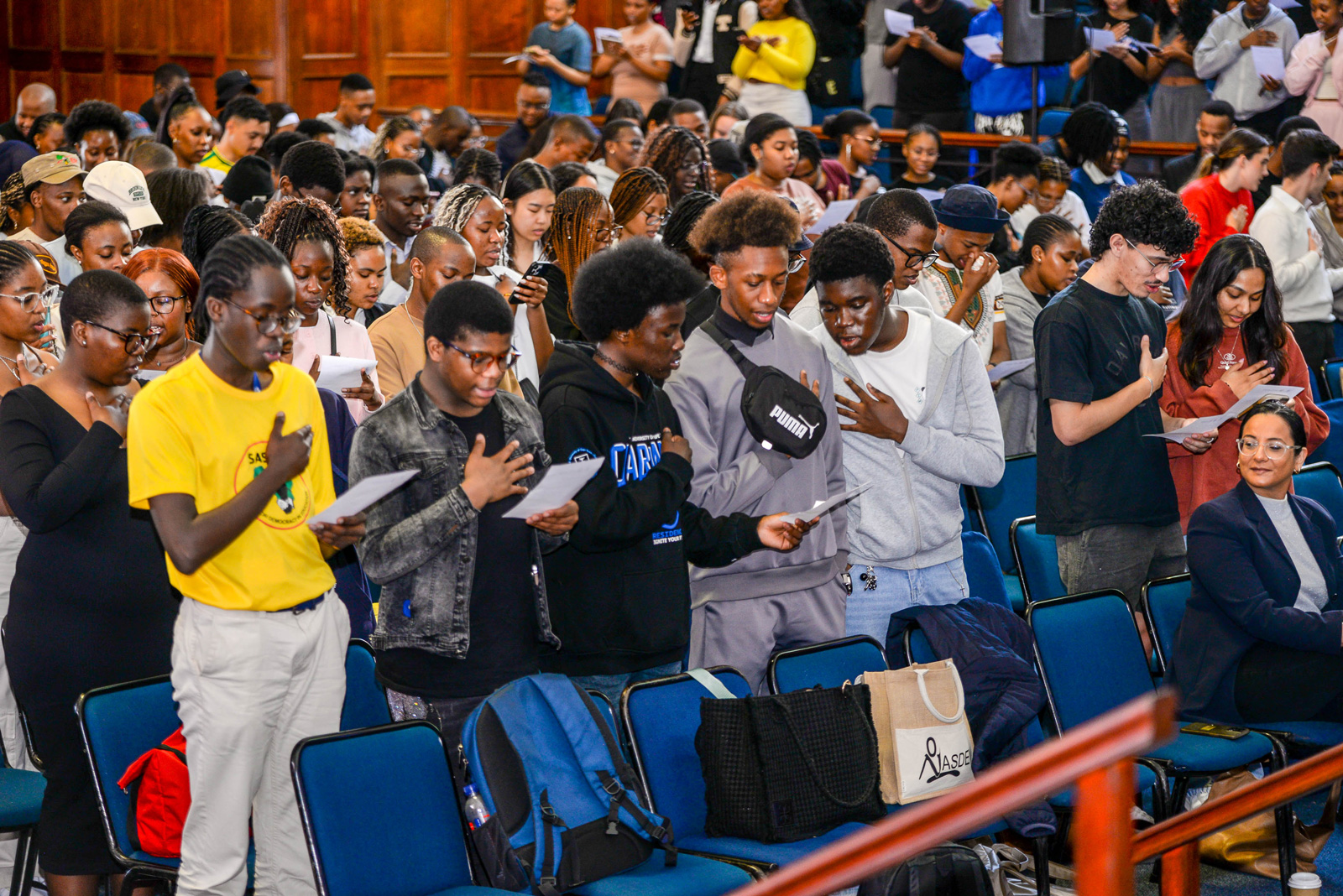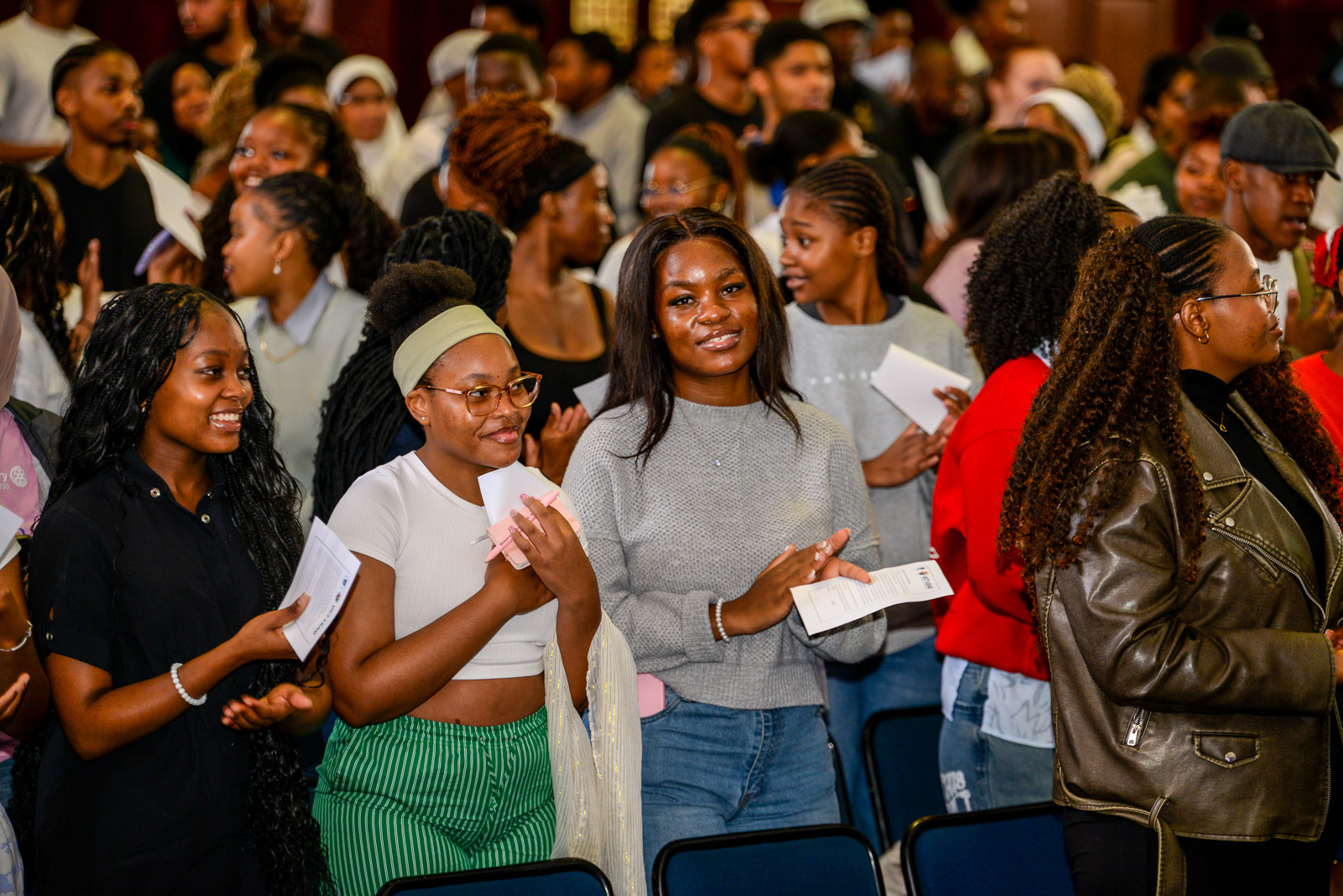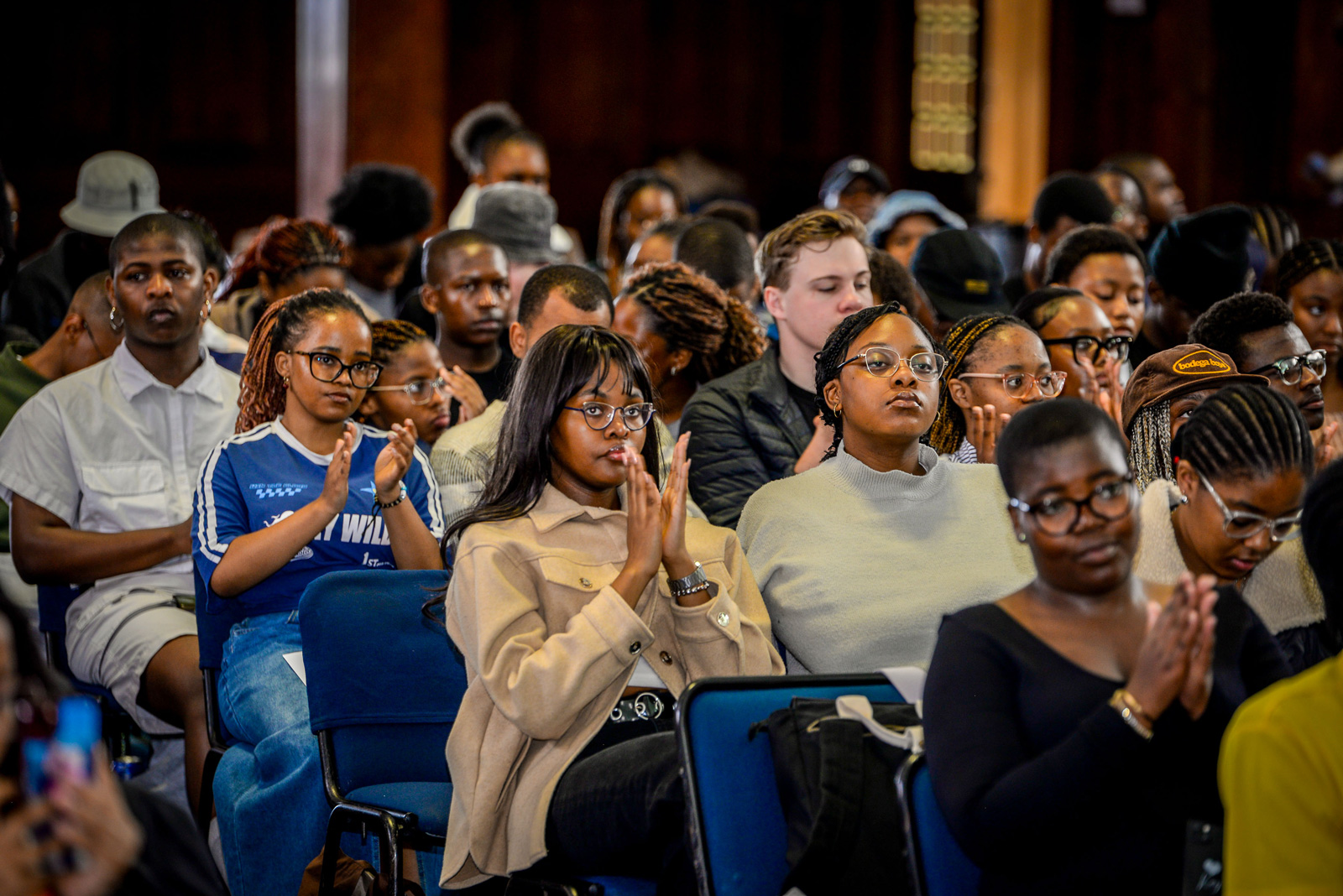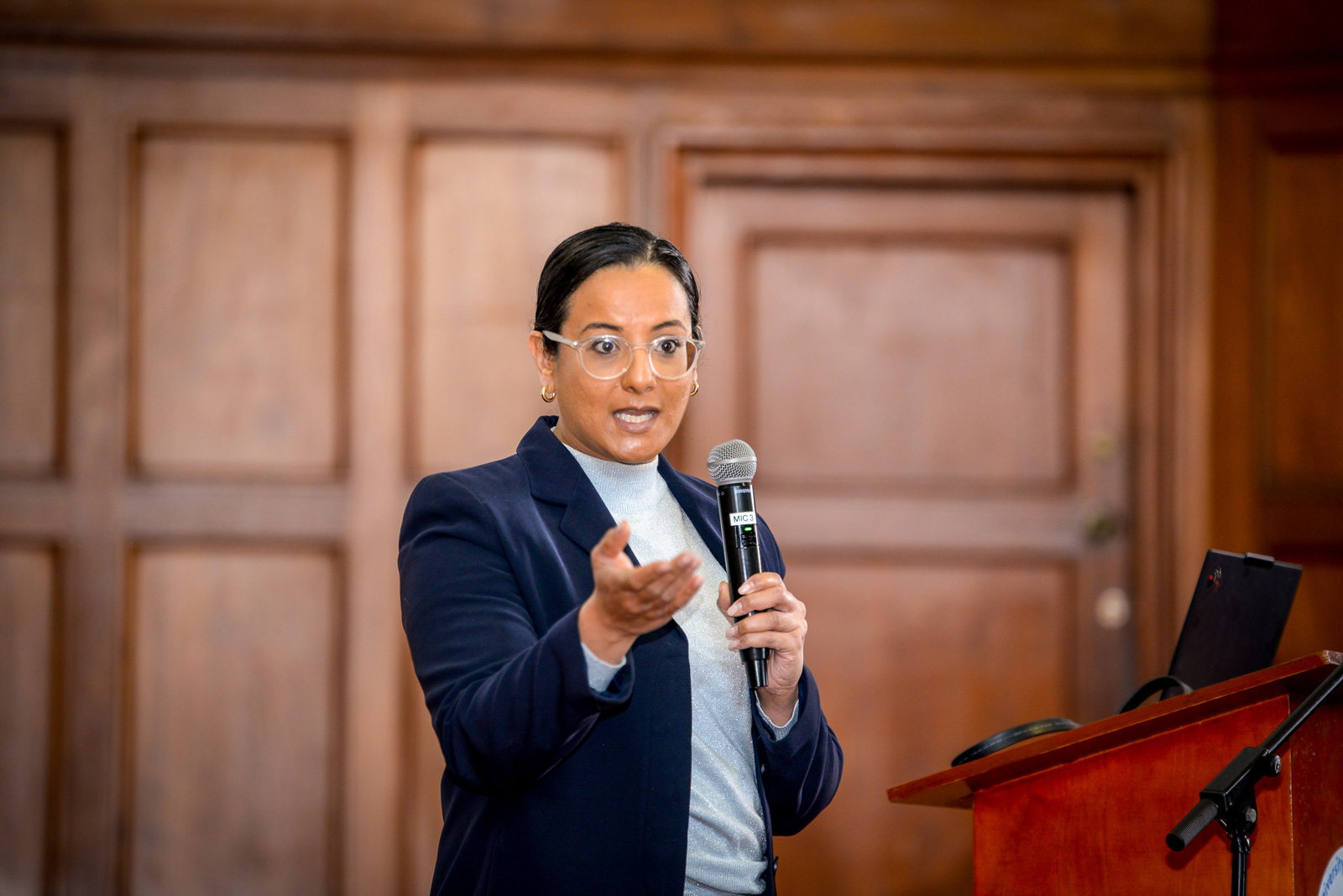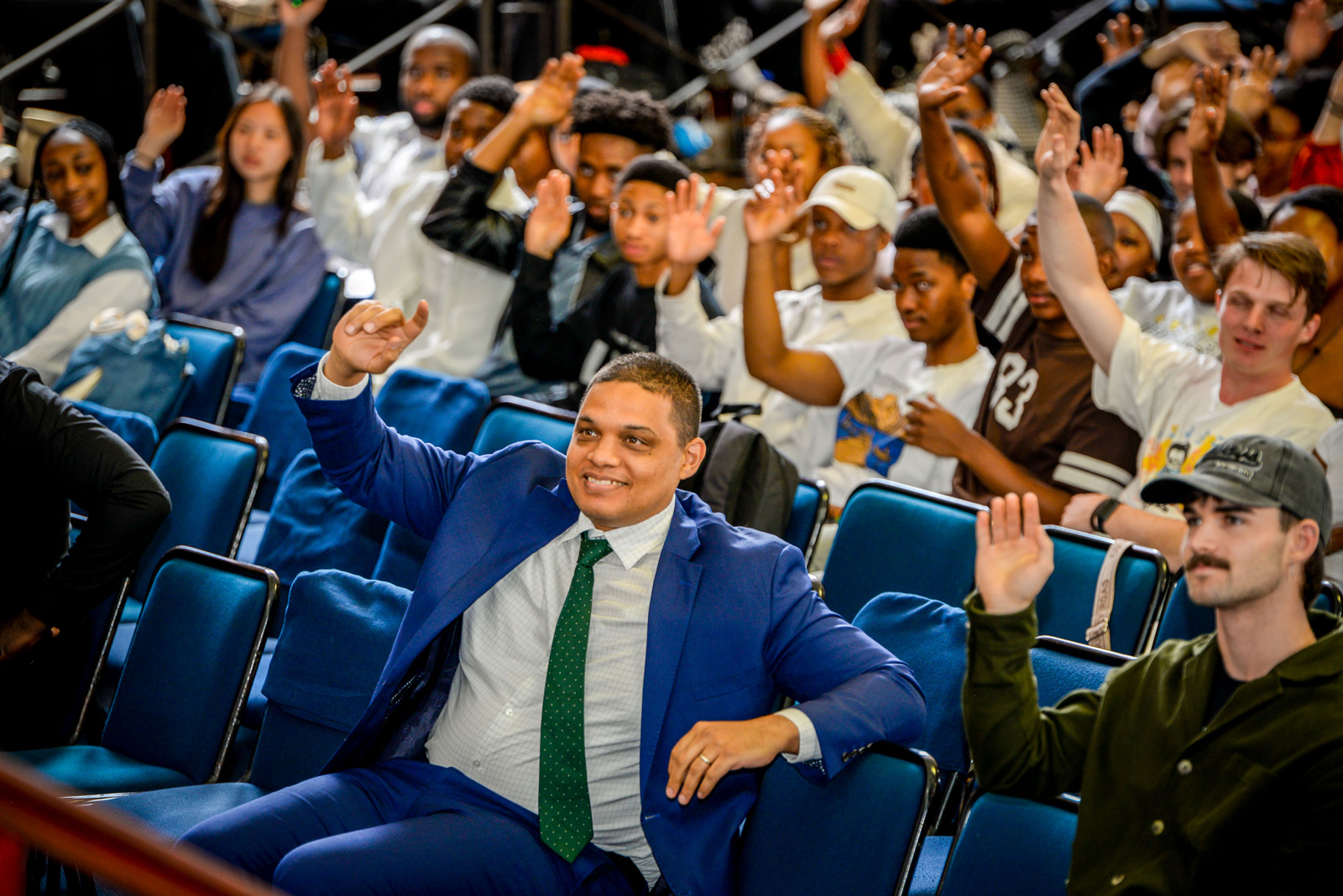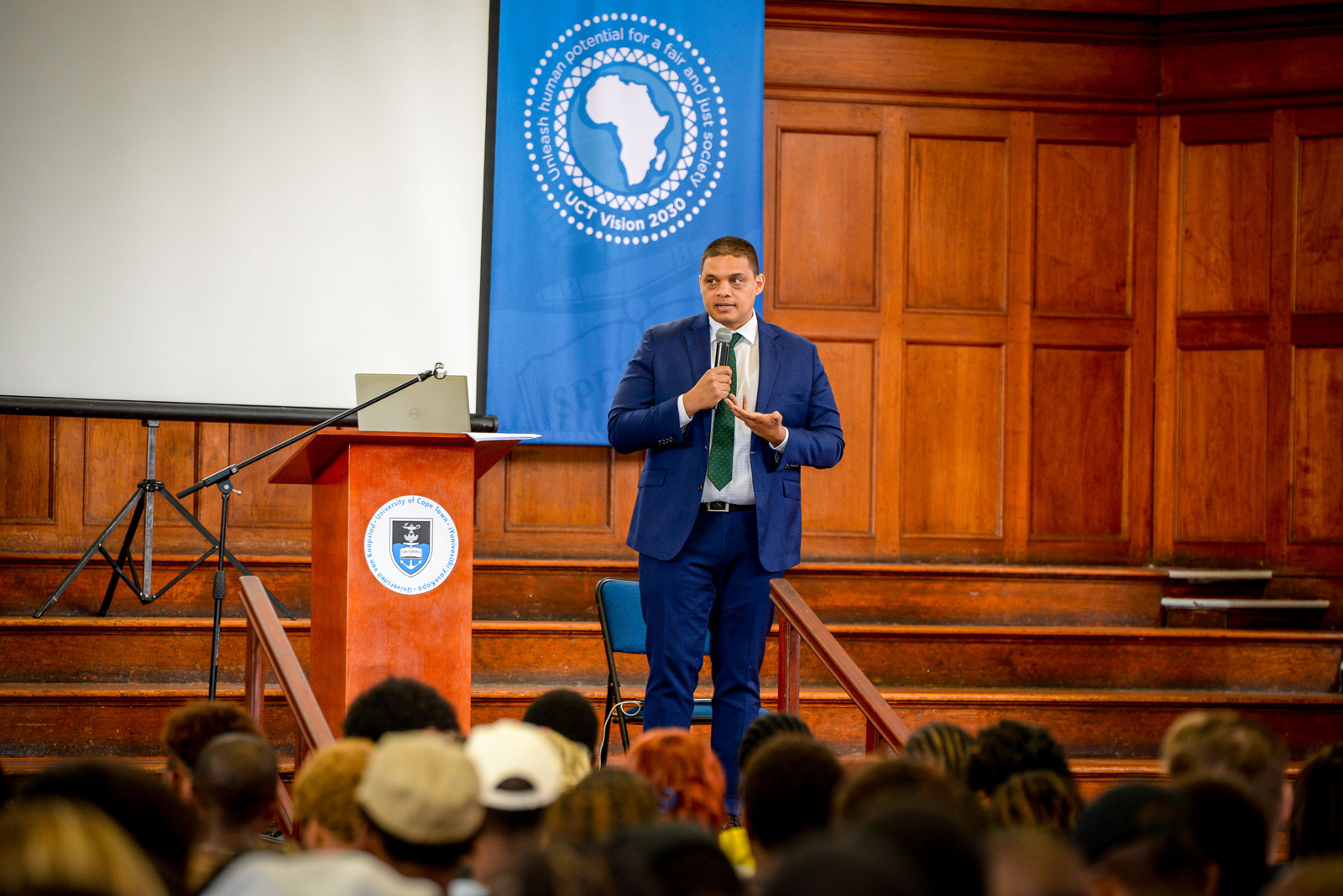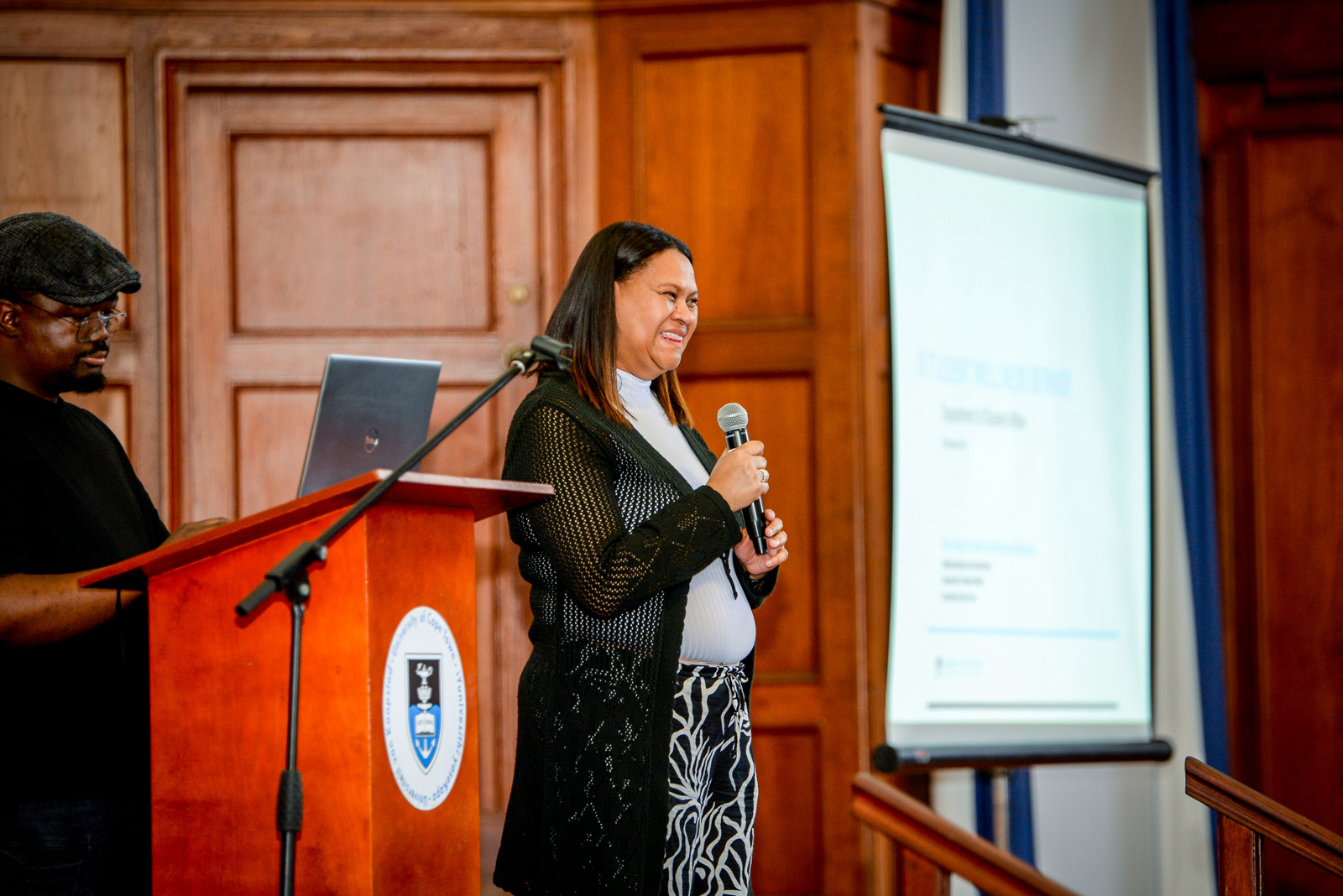Lighting the flame of change
21 October 2025 | Story Myolisi Gophe. Photos Robin Thuynsma. Read time 6 min.
More than 200 newly elected student leaders from across the University of Cape Town (UCT) filled Sarah Baartman Hall on Saturday, 18 October, for the university’s first-ever Student Leadership Induction – a landmark event aimed at cultivating a new generation of conscious, compassionate, and transformative leaders.
Hosted by the Department of Student Affairs (DSA), the induction marked the beginning of a collective journey of leadership development that places student wellbeing, social justice, and transformation at its core. The day brought together residence, faculty, and society leaders, alongside alumni and staff from across the university, in an atmosphere charged with reflection, energy and purpose.
In her keynote address, which was read in her absence, Deputy Vice-Chancellor for Transformation, Student Affairs and Social Responsiveness Professor Elelwani Ramugondo urged students to see leadership not as a position of power, but as a practice grounded in empathy, humility and responsibility.
“Discomfort is not the enemy of learning. It’s where transformation takes root.”
“Leadership is not about occupying space; it is about holding space – for others, for ideas, for growth,” she said. “Our students must understand that leadership in a university context is relational. It requires the courage to listen deeply, to act ethically, and to work collectively in shaping the kind of institution we all wish to belong to.”
She added that the university’s Vision 2030, with its focus on sustainability, transformation and excellence, could only be achieved through active student participation. “UCT’s future is being co-created by you. You are not just representatives of your peers – you are partners in the ongoing transformation of this institution.”
Transformative human encounters
DSA Executive Director Pura Mgolombane invited the students to think about leadership as both a spiritual and emotional pursuit – one that recognises the interconnectedness of human experience. His address explored what he called “transformative human encounters”: moments where compassion and understanding have the power to heal and inspire.
“The purpose,” he explained, “is to provide spiritual and emotional transformative encounters for students – to empower them with both spiritual and emotional agility for their wellbeing and academic success.”
Mgolombane described the department’s approach as one rooted in humanising leadership: “When we encounter another person, the first thing we should see is not their race, gender or qualification – but their humanity. Because once that has happened, whatever follows happens between two human beings.”
He urged student leaders to embrace discomfort as part of their growth. “Discomfort is not the enemy of learning,” he said. “It’s where transformation takes root.”
Mgolombane closed by challenging students to “rekindle the fire within the soul” – to nurture resilience, seek wise counsel, and create spaces of safety and belonging. “When you flourish as a whole being – body, mind and soul – you lead not just with intellect, but with heart,” he said.
Director for the Office for Inclusivity & Change (OIC) Dr Sianne Alves praised the DSA team for coordinating the inaugural induction, describing it as “breathtaking” to witness so many student leaders gathered in one hall – a far cry from her own student days when there were just 15.
Drawing on the imagery of flame, Dr Alves linked the metaphor to both renewal and resilience. “Through embers, community is rebirthed. Through flame, we are re-energised. You are the positive flame keepers of this university. Each of you has the power to reignite change and to help UCT define its next chapter.”
Alves challenged the new leaders to view transformation not as an abstract policy goal but as a daily practice of human connection. “Transformation is about creating a space where every student and staff member has a voice that is valued, heard and empowered,” she said. “Without transformation, excellence and sustainability lead to stagnation.”
Student leaders as agents of change
In her address, Alves detailed how UCT’s transformation framework provides students with direct opportunities to shape institutional culture and policy. From serving on the Institutional Forum and Transformation Committees to leading anti–gender-based violence initiatives and disability inclusion programmes, student leaders play a crucial role in embedding the university’s values in everyday life.
“Today, you sit at the decision-making table,” she told them. “You now have the privilege and responsibility of being the voice of change.”
“True leadership is about presence – being aware, being kind, and being accountable. It’s about ensuring that others can thrive because you have made space for them.”
She highlighted new initiatives such as the Student Experience Inclusion Survey and the Accelerated Transformation Academic Programme (ATAC), which invite students to participate in co-creating a more inclusive academic environment. “We don’t just want you to graduate and leave,” she said. “We want you to stay, to teach, to share your brilliance with the next generation.”
Throughout the day, speakers, who included alumnus Michael Stephanus, spoke on ethical leadership and leading with integrity. They emphasised that leadership at UCT is a shared endeavour – one rooted in ubuntu, reflection and care. The induction programme included plenaries, workshops and interactive dialogues designed to help student leaders explore issues of identity, social justice, and wellbeing in the higher education context. Student leaders were also capacitated to align their work to the university vision and strategy.
As Ramugondo reminded participants, “True leadership is about presence – being aware, being kind, and being accountable. It’s about ensuring that others can thrive because you have made space for them.”
 This work is licensed under a Creative Commons Attribution-NoDerivatives 4.0 International License.
This work is licensed under a Creative Commons Attribution-NoDerivatives 4.0 International License.
Please view the republishing articles page for more information.


